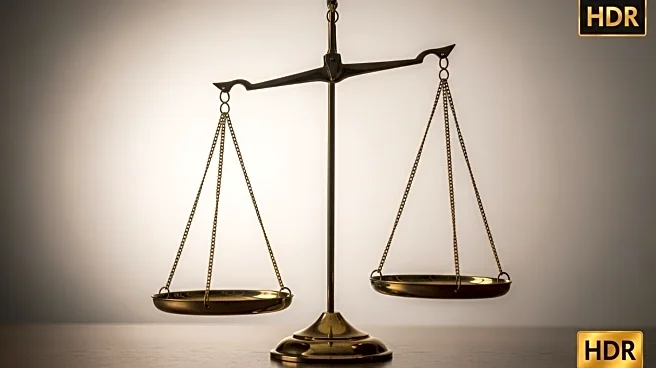What's Happening?
NPR has filed for a temporary restraining order in a U.S. district court to prevent the Corporation for Public Broadcasting (CPB) from reallocating funds for satellite interconnection to an entity other than NPR. CPB announced a $57.9 million grant over five years to Public Media Infrastructure, a new nonprofit consortium, instead of renewing NPR's management of the Public Radio Satellite System (PRSS). NPR argues that this move is influenced by President Trump's executive order aimed at ending taxpayer funding for what he deems biased media. NPR claims that CPB's decision violates the Public Broadcasting Act, which mandates funding distribution to the designated national entity managing PRSS.
Why It's Important?
This legal battle underscores the ongoing tensions between public media organizations and government influence. The outcome could affect the future of public radio funding and distribution, potentially impacting NPR's ability to operate effectively. The case also raises concerns about political interference in media operations and the implications for free speech and journalistic independence. If CPB's decision stands, it could set a precedent for reallocating public media funds based on political considerations rather than established legal frameworks.
What's Next?
The court's decision on the restraining order will be pivotal in determining the immediate future of PRSS funding. If NPR succeeds, it may maintain its role in managing the satellite system, but if not, the new consortium will take over. The case could lead to further legal challenges and discussions about the role of government in public media funding. Stakeholders in the public media sector will be closely monitoring the situation, as it could influence future funding and operational decisions.
Beyond the Headlines
The dispute highlights broader issues of media independence and the potential consequences of political pressure on public broadcasting. It raises questions about the balance between government oversight and media autonomy, and the role of public media in a democratic society. The case could also influence public perceptions of media bias and the trustworthiness of news organizations.









